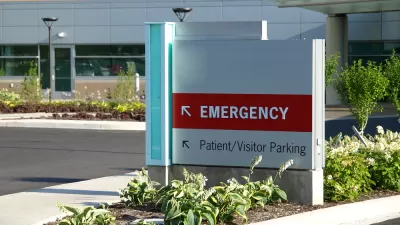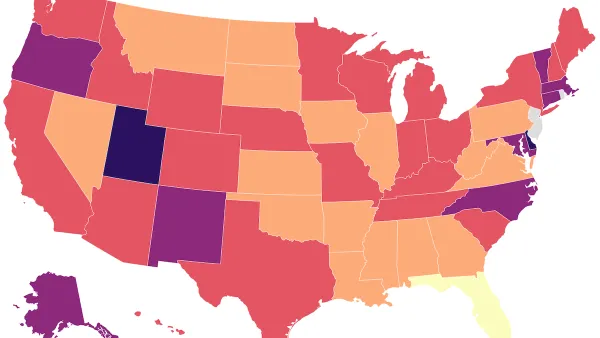Inequities in healthcare are linked to inequities in urban planning, a public health researcher argues.

[Updated January 18, 2019] For Green Inequalities, the blog of the Barcelona Laboratory for Urban Environmental Justice and Sustainability, public health researchers Helen Cole and Emily Franzosa explore how access to hospitals and medical care fit into cities' ongoing move toward gentrification. "In much the same way that urban gentrification continues to see the exclusion of poorer residents from once-disinvested and now newly desirable neighborhoods, so are these residents increasingly excluded from accessing healthcare and the health care jobs in these neighborhoods that have long been a steady source of employment," according to the article.
One problem is that large medical companies—sources of both medical services and local employment—are shuttering full-service hospitals in favor of expensive practices serving higher-income clientele in gentrifying areas. "These shifts in the provision and cost of basic healthcare reflect the same patterns as those in the cost of living in gentrifying neighborhoods: when goods and services are increasingly provided for the new, wealthy class, they often leave behind less affluent residents," according to the article.
For a case study, Cole and Franzosa turn to Dallas, Texas, where extreme income inequality and high rates of uninsurance collide. She also points to the successful campaign by Chicago activists to open a trauma center in the South Side—the area's first in 30 years.
[Updated to include both researchers credited for the project.]
FULL STORY: The Gentrification of American Healthcare

Maui's Vacation Rental Debate Turns Ugly
Verbal attacks, misinformation campaigns and fistfights plague a high-stakes debate to convert thousands of vacation rentals into long-term housing.

Planetizen Federal Action Tracker
A weekly monitor of how Trump’s orders and actions are impacting planners and planning in America.

San Francisco Suspends Traffic Calming Amidst Record Deaths
Citing “a challenging fiscal landscape,” the city will cease the program on the heels of 42 traffic deaths, including 24 pedestrians.

Defunct Pittsburgh Power Plant to Become Residential Tower
A decommissioned steam heat plant will be redeveloped into almost 100 affordable housing units.

Trump Prompts Restructuring of Transportation Research Board in “Unprecedented Overreach”
The TRB has eliminated more than half of its committees including those focused on climate, equity, and cities.

Amtrak Rolls Out New Orleans to Alabama “Mardi Gras” Train
The new service will operate morning and evening departures between Mobile and New Orleans.
Urban Design for Planners 1: Software Tools
This six-course series explores essential urban design concepts using open source software and equips planners with the tools they need to participate fully in the urban design process.
Planning for Universal Design
Learn the tools for implementing Universal Design in planning regulations.
Heyer Gruel & Associates PA
JM Goldson LLC
Custer County Colorado
City of Camden Redevelopment Agency
City of Astoria
Transportation Research & Education Center (TREC) at Portland State University
Jefferson Parish Government
Camden Redevelopment Agency
City of Claremont




























